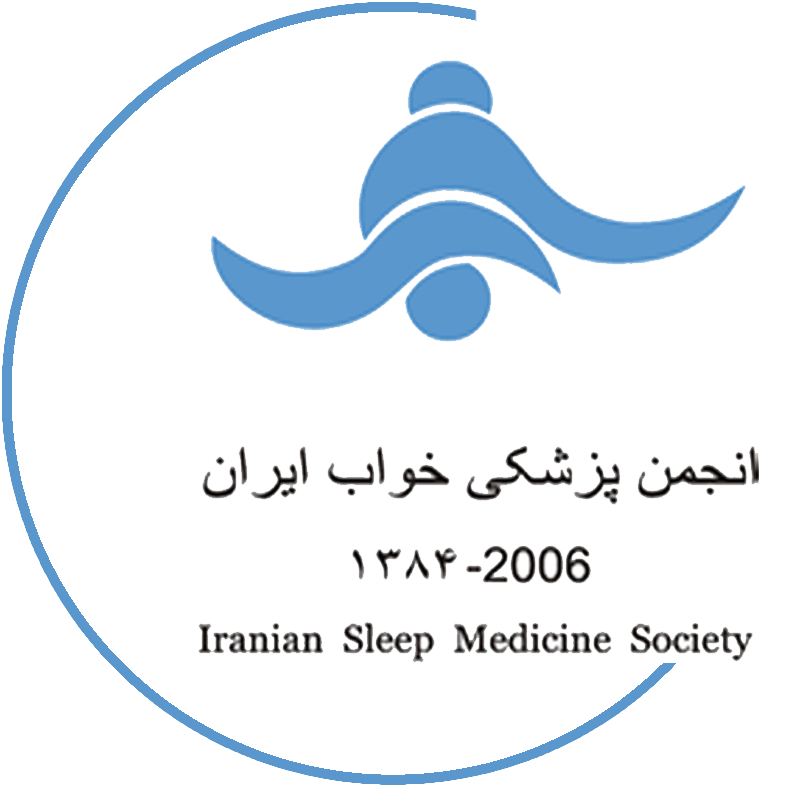Investigating the Relationship between Attachment Styles and Internet Addiction and Daytime Sleepiness in Students
Abstract
Background and Objective: Sleep is one of the important elements in life that is accompanied by physical and mental rehabilitation. Suitable sleep quality is necessary for health and it has a direct relationship with physical and mental health of the person. The objective of this study is to investigate the relationship between attachment styles and internet addiction and daytime sleepiness of students.
Materials and Methods: The statistical population of this study included students of Islamic Azad University, Saveh Branch, Saveh, Iran, including 1200 students. Using the random sampling method and according to Morgan’s table, 291 students were selected as the study sample and the Attachment Style Questionnaire (ASQ) by Hazan and Shaver, Young’s Internet Addiction Diagnostic Questionnaire (IADQ), and Epworth Sleepiness Scale (ESS) were distributed among them and data were analyzed by SPSS software.
Results: The results showed that a significant and positive relationship exists between sleepiness and avoidant attach-ment style as well as internet addiction and daytime sleepiness. The results of data analysis with regression showed that attachment styles and internet addiction predict 62% of daytime sleepiness changes.
Conclusion: According to the results of this study, it can be concluded that attachment styles and internet addiction are good predictors for daytime sleepiness.
2. Boris NW, Zeanah CH. Disturbances and disorders of attachment in infancy: An overview. Infant Ment Health J 1999; 20: 1-9.
3. Bowlby J. Attachment and loss: retrospect and prospect. Am J Orthopsychiatry 1982; 52: 664-78.
4. Mikulincer M, Shaver PR. Attachment in adult-hood: Structure, dynamics, and change. New York, NY: Guilford Press; 2007.
5. Evren C, Evren B, Dalbudak E, et al. Relationships of Internet addiction and Internet gaming disorder symptom severities with probable attention defi-cit/hyperactivity disorder, aggression and negative affect among university students. Atten Defic Hyperact Disord 2019; 11: 413-21.
6. Andreassen CS, Torsheim T, Brunborg GS, et al. Development of a Facebook addiction scale. Psychol Rep 2012; 110: 501-17.
7. Li W, O'Brien JE, Snyder SM, et al. Characteristics of internet addiction/pathological internet use in U.S. university students: a qualitative-method investigation. PLoS One 2015; 10: e0117372.
8. Demircioglu ZI, Köse AG. Effects of attachment styles, dark triad, rejection sensitivity, and relationship satisfaction on social media addiction: A mediated model. Curr Psychol 2018; 1-15.
9. Wolfson AR. Adolescents and emerging adults' sleep patterns: new developments. J Adolesc Health 2010; 46: 97-9.
10. Sanchez SE, Martinez C, Oriol RA, et al. Sleep quality, sleep patterns and consumption of energy drinks and other caffeinated beverages among Peruvian college students. Health (Irvine Calif) 2013; 5: 26-35.
11. Van den Bulck J. Television viewing, computer game playing, and Internet use and self-reported time to bed and time out of bed in secondary-school children. Sleep 2004; 27: 101-4.
12. Salehi Shahrabi M., Shahrabi M, Heidari A, et al. Role of attachment style in prediction of behavior of 3 to 6-year-old children. Eur Arch Paediatr Dent 2020.
13. Pordelan N, Sadeghi A, Abedi MR, et al. Promoting student career decision-making self-efficacy: An online intervention. Educ Inf Technol 2020; 25: 985-96.
14. Aghajani M, Hajijafari M, Akbari H, et al. Cleveland adolescent sleepiness questionnaire (CASQ): A translation and validation study of the Persian version. Sleep Biol Rhythms 2020; 18: 209-15.
15. Pordelan N, Sadeghi A, Abedi MR, et al. How online career counseling changes career development: A life design paradigm. Educ Inf Technol 2018; 23: 2655-72.
16. Hazan C, Shaver P. Romantic love conceptualized as an attachment process. J Pers Soc Psychol 1987; 52: 511-24.
17. Nadiri M, Khalatbari J. Study of marital satisfaction in students based on psychological components of attachment style, perfectionism and conflict resolution. Brain 2018; 9: 120-7.
66 J Sleep Sci, Vol. 5, No. 2, 2020
http://jss.tums.ac.ir
18. Widyanto L, McMurran M. The psychometric properties of the internet addiction test. Cyberpsychol Behav 2004; 7: 443-50.
19. Alavi SS, Eslami M, Maracy MR, et al. Psychometric properties of young internet addiction test. International Journal of Behavioral Sciences 2010; 4: 183-9. [In Persian].
20. Dehghani M, Sadeghniat K, Ebrahimi M. Relation-ship between Epworth Sleepiness Scale and obstructive sleep apnea with road accidents. Iran Occup Health 2015; 12: 87-96. [In Persian].
21. Omachi TA. Measures of sleep in rheumatologic diseases: Epworth Sleepiness Scale (ESS), Functional Outcome of Sleep Questionnaire (FOSQ), Insomnia Severity Index (ISI), and Pittsburgh Sleep Quality Index (PSQI). Arthritis Care Res (Hoboken) 2011; 63: S287-S296.
22. Niko Verdecias R, Jean-Louis G, Zizi F, et al. Attachment styles and sleep measures in a community based sample of older adults. Sleep Med 2009; 10: 664-7.
23. Escolas SM, Hildebrandt EJ, Maiers AJ, et al. The effect of attachment style on sleep in postdeployed service members. US Army Med Dep J 2013; 35-45.
24. Mahoney SL. Attachment styles, sleep quality, and emotional regulation in severely emotionally disturbed youth: A psychobiological perspective. Minneapolis, MN: Capella University; 2009.
25. Alimoradi Z, Lin CY, Brostrom A, et al. Internet addiction and sleep problems: A systematic review and meta-analysis. Sleep Med Rev 2019; 47: 51-61.
26. Jahan SM, Hossain SR, Sayeed UB, et al. Association between internet addiction and sleep quality among students: A cross-sectional study in Bangladesh. Sleep Biol Rhythms 2019; 17: 323-9.
27. Khayat M, Qari M, Almutairi B, et al. Sleep quality and internet addiction level among university students. Egypt J Hosp Med 2018; 73: 7042-7.
| Files | ||
| Issue | Vol 5 No 2 (2020): Spring | |
| Section | Original Article(s) | |
| DOI | https://doi.org/10.18502/jss.v5i2.5613 | |
| Keywords | ||
| Sleepiness; Behavior, Addictive; Public health students | ||
| Rights and permissions | |

|
This work is licensed under a Creative Commons Attribution-NonCommercial 4.0 International License. |



